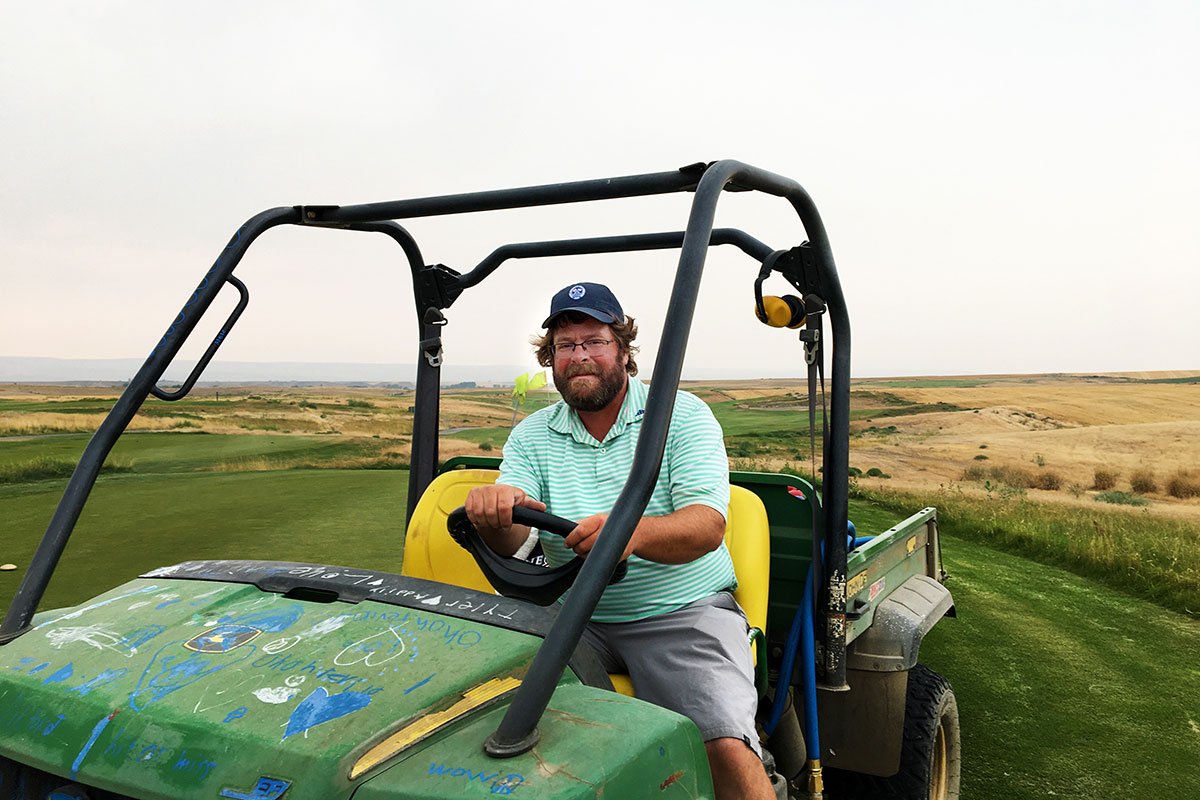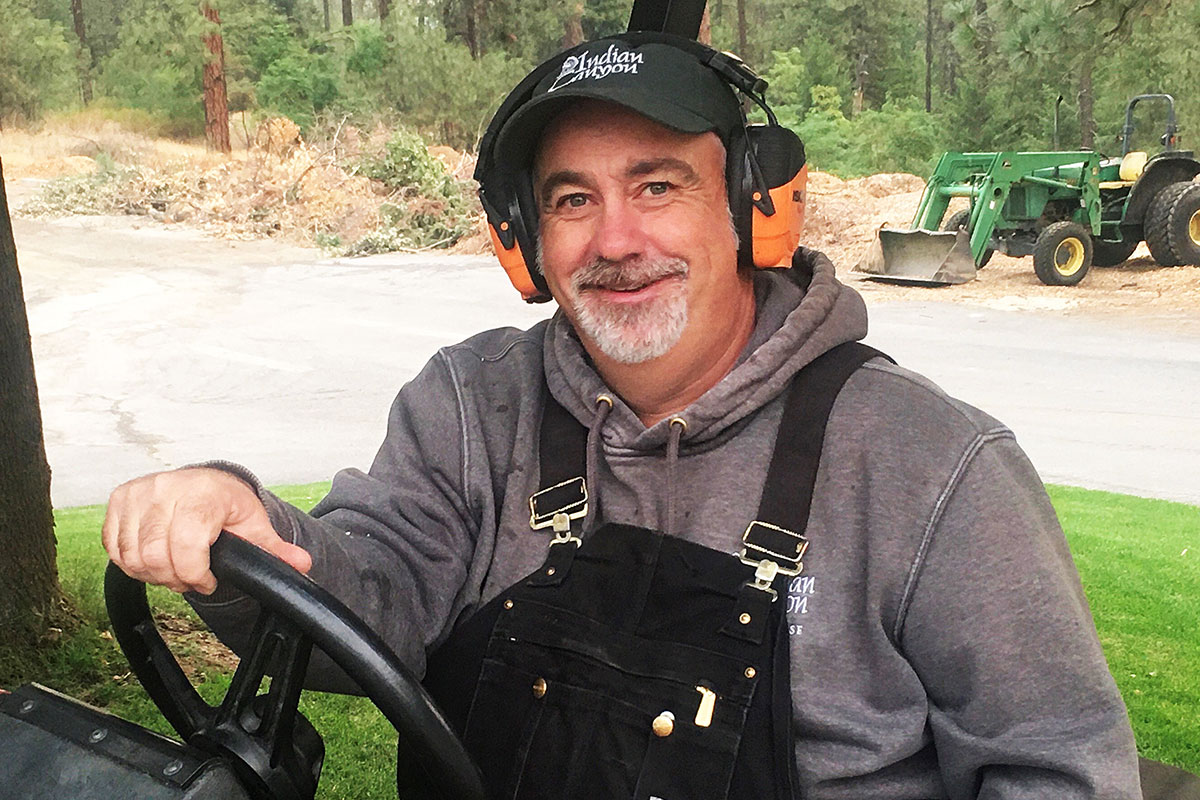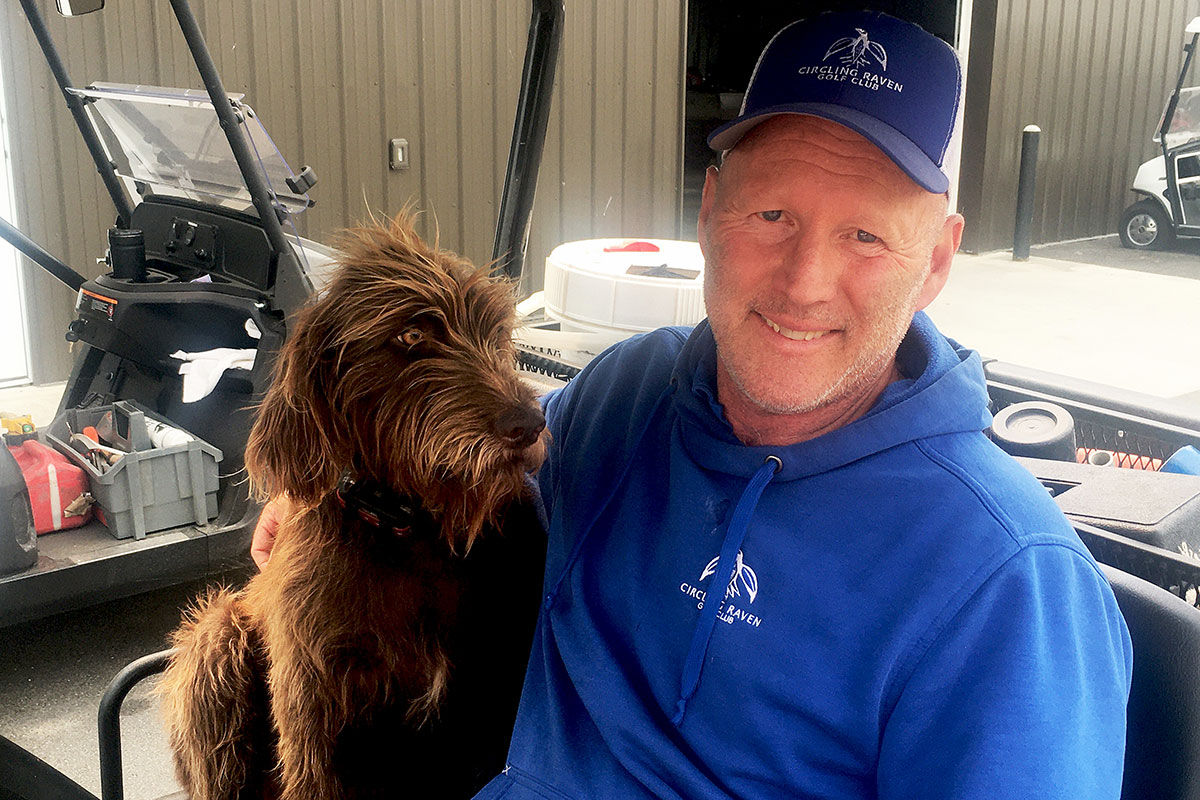For Love of the Game; For Love of the Ground
Through this extreme summer, the region’s superintendents keep the course, and the game, alive
By Bob Bostwick
Their lives are defined by their love of the game, yet there is more. Much more.
Their lives are equally defined, certainly dedicated, for love of the ground it’s played on, including every blade of grass and every looming tree.
The work starts before the sun rises and continues after it sets. It comes during a pandemic and during the worst drought and highest temperatures on record.

While the rest of us are sleeping peacefully, dreaming of all the birdies we won’t get in tomorrow’s skins game, course superintendents and their crews are rising, up as early as midnight. In winter and spring months, they’re donning their wool sweaters and down jackets, on the job before the frost sets in. They’re warming themselves and their equipment for duty on fairways and greens, and to meet the expectations of the playing public.
Expectations. We have plenty, and we will have more.
Superintendents and grounds crews, mostly men but a growing number of women, are better at it than previous generations. And they are so because there is more to know about the earth sciences they apply, and the materials and tools required to do so.
“The educational levels among superintendents just gets better, and better, and better,” said Chris Isaacson, PGA director of golf at Wine Valley Golf Club in Walla Walla. Wash. “But it’s more than that. Superintendents and crews take on their jobs and challenges with deep passion for their course and the playing conditions they create.”
Isaacson was speaking of all superintendents, but also targeting his own, Tyler Daniels. As of this writing, Daniels’ last day off was May 2nd. Nobody’s calling him in for extra duty – he makes that call, himself.
Passion, ya know, and a two handicap to go with it.
“It’s all personal for me,” Daniels explains. “I’m a golfer. I’ve only ever worked at a golf course. I like it, I love it, and it’s a reflection on me. It doesn’t feel like a job.”
That attitude pays off on Daniels’ fescue fairways and bentgrass greens, delighting golfers who can hit both.
Says Daniels with a grin, “Sometimes, I’m just showing off.”
The story of our superintendents changed dramatically this summer, with grounds crews and golfers alike bearing the unbearable: Record heat and record-low rainfall, both beyond imagination for most people in the Pacific Northwest have defined the 2021 season.
Spokane recorded the most days ever in triple digits, most days above 90 degrees, and the misery of it compounded by only five inches of rain since December.

Spokane’s golf culture survived, with rounds played estimated at a 20 percent increase over 2020, and a 40 percent increase over 2019. Go figure.
“In this weather, nothing good happens, and everything bad happens very fast,” said Josh Harty, who has spent his most formative years as superintendent at Spokane’s Indian Canyon. His work benefits from a new sprinkler system, but locals were raving about playing conditions well before the new system was installed in 2018-19.
“Compliments are great,” Harty said. “But I don’t think about the good stuff. It’s not my worry. I think far more about divots and ball marks, and most of us here have been doing this kind of work since we were 18 years old or younger.”
Across town from Indian Canyon, Downriver Golf Course is arguably the most accurate reflection of Spokane’s deeply rooted golf culture. It’s been slammed with play on the northwest side since opening in 1916, and easily outpaces all others locally and regionally in numbers of players, with 300-plus on the tee sheet being typical, 400-plus more than occasionally.
Downriver Superintendent Ben Nelson is a +1 handicap. He holds a Bachelor’s degree in Business Management from Quinnipiac University in Hamden, Conn. That’s a fine pedigree, but so is the Associate degree in Turf Management he earned at Walla Walla Community College, and there’s 20 years working the ground and learning from his father, Don Nelson, retired and formerly the superintendent at Indian Canyon.
“I’ve been doing this since high school and college, working summers,” Nelson said. “With my dad, I was doing it before I was big enough to reach the foot pedals in the carts, and heavy enough to cut the cups. I just fell in love with it.”
At Moses Pointe in Moses Lake, nature’s challenges include plenty of heat and plenty of wind, both significant toward dry ground and the need for more water. At 66, Kelvin Korsmoe’s lengthy time in the business helps him know how to deal with all that and more.
“We irrigate at 1,500 gallons per minute when the system is on,” Korsmoe said. “We are more accustomed to hot weather and wind than people outside the (Columbia) basin. It’s always a battle here. We use wetting agents on the greens as well as extra water. I’m a bit more old school (than counterparts). These days, you need to be a rocket scientist to keep up with everything.”
In Northern Idaho, Circling Raven Golf Club’s Brian Woster has demands from different kinds of visitors.

“I worry about moose tracks,” he said. “But I also worry about losing grass. It’s been tough on our Kentucky bluegrass, on our fairways and tees. Our watering is up 20 percent this year.”
Circling Raven’s playing conditions have brought raves from all over, but it’s generally true – and even in this scorched earth summer – that playing conditions statewide have been happily applauded, and players continue their status as spoiled and loving it.
But golfers here and everywhere know who it is out there making things right and good.
“Compliments are better than complaints,” Woster said. “They do make it a bit easier to get up in the morning, and to come to work with more incentive and more purpose.”
Any superintendent, any member of a grounds crew, will likely ask very little of those who walk their ground. Mostly, they would simply ask that players repair their divots and ball marks.
Perhaps we will do so for love of the game, and equally so for love of the ground it’s played on.





